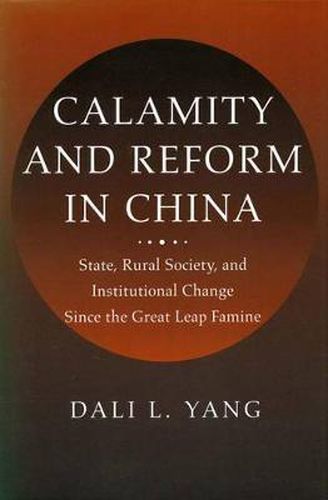Readings Newsletter
Become a Readings Member to make your shopping experience even easier.
Sign in or sign up for free!
You’re not far away from qualifying for FREE standard shipping within Australia
You’ve qualified for FREE standard shipping within Australia
The cart is loading…






China’s Great Leap Famine of 1959-61 resulted in 30 million deaths, making it easily the worst famine in human history. Yet unlike the Cultural Revolution - that other massive catastrophe of Mao’s rule - the Great Leap Forward has received scant scholarly attention. This is partly because victims of the ensuing famine were inarticulate farmers and partly because many key players in that inglorious era are members of the current elite who tightly guard the archives. Despite these impediments, the author has marshalled an impressive array of historical documents to provide the first comprehensive treatment of the political causes and consequences of the Great Leap Famine. The Famine is important because it furnished the crucial historical motives for dismantling the rural collective institutional structure in post-Mao China two decades later and motivating tens of millions of ordinary Chinese to enact the reforms.
$9.00 standard shipping within Australia
FREE standard shipping within Australia for orders over $100.00
Express & International shipping calculated at checkout
China’s Great Leap Famine of 1959-61 resulted in 30 million deaths, making it easily the worst famine in human history. Yet unlike the Cultural Revolution - that other massive catastrophe of Mao’s rule - the Great Leap Forward has received scant scholarly attention. This is partly because victims of the ensuing famine were inarticulate farmers and partly because many key players in that inglorious era are members of the current elite who tightly guard the archives. Despite these impediments, the author has marshalled an impressive array of historical documents to provide the first comprehensive treatment of the political causes and consequences of the Great Leap Famine. The Famine is important because it furnished the crucial historical motives for dismantling the rural collective institutional structure in post-Mao China two decades later and motivating tens of millions of ordinary Chinese to enact the reforms.